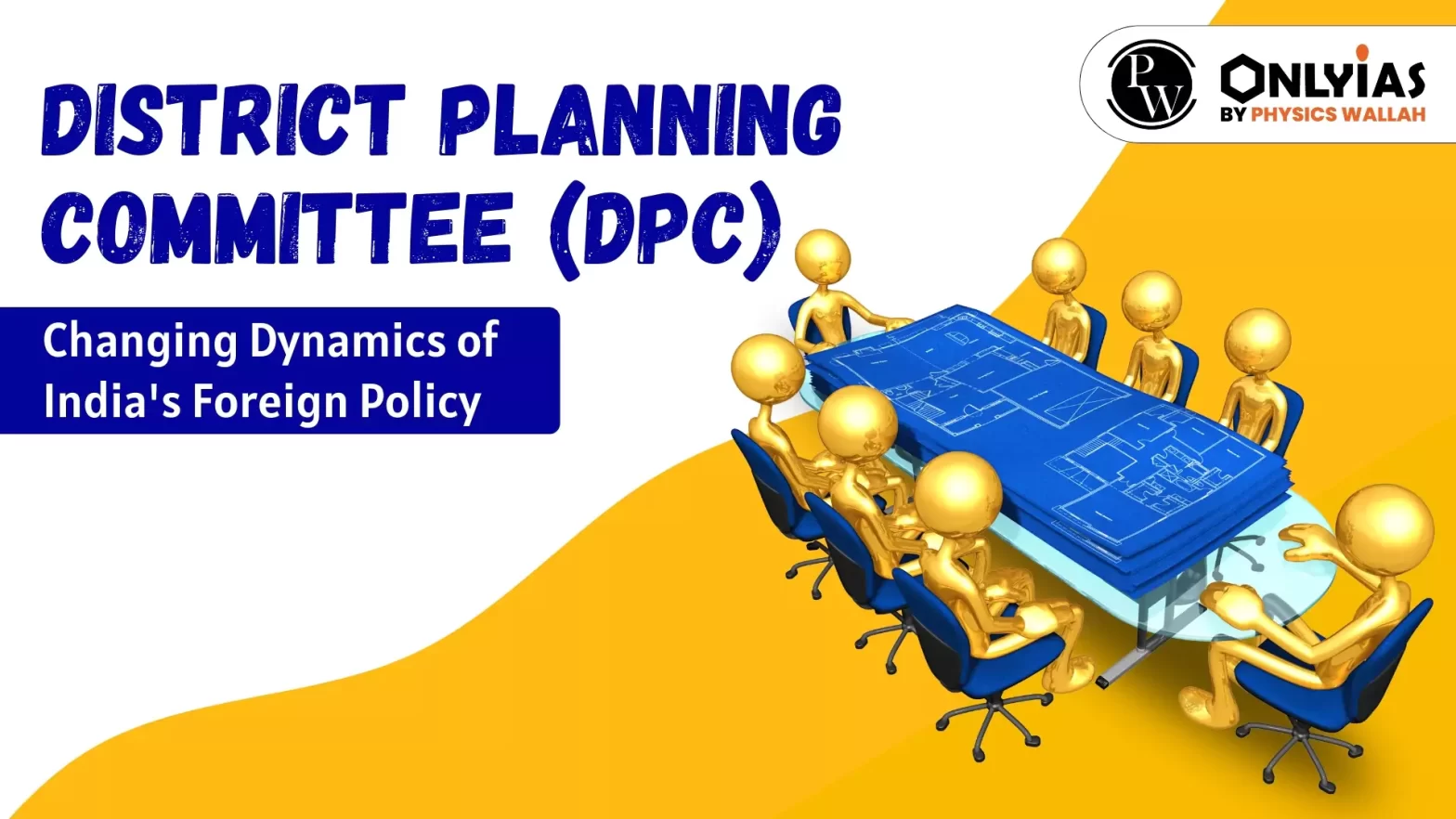The District Planning Committee, mandated by Article 243ZD of the Indian Constitution, is formed in each district. Its role is to prepare a draft development plan for the district as a whole.

District Planning Committee (DPC): DPC is a decentralized planning organization. The First ARC (1967), Dantwala Committee (1978), and Hanumantha Rao Committee (1983) all recommended its creation. Article 243ZD of the 74th Constitutional Amendment Act of 1992 made the establishment of DPC constitutional.
Before this clause, there were Zila Aayojana Boards, DPC (Raj., etc.), Zila Vikas Boards, also known as Zila Yojana, and Vikas Boards that existed and essentially vanished in several states. In 1998, Orissa passed its own DPC law. DPCs were established by Rajasthan under the 1997 Rajasthan Panchayati Raj Act.
District Planning Committee is set up under Article 243ZD of the Constitution of India at the district level.
| Must Read | |
| NCERT Notes For UPSC | UPSC Daily Current Affairs |
| UPSC Blogs | UPSC Daily Editorials |
| Daily Current Affairs Quiz | Daily Main Answer Writing |
| UPSC Mains Previous Year Papers | UPSC Test Series |
District Planning Committee is a constitutional body set up under Article 243ZD of the Constitution of India at the district level.
The main mandate of the District Planning Committee is to coordinate developmental plans of Zilla Parishad, Gram Panchayats, Nagar Panchayat, Municipal Council, and Municipal Corporation.
The state legislature has the power to set up the District Planning Committee.
The 73rd Constitutional Amendment Act of 1992 gave constitutional status to Panchayati Raj institutions in the country.
Members of panchayats at village, intermediate, and district levels shall be elected directly by the people. The chairperson election shall be determined by the state legislature.
<div class="new-fform">
</div>